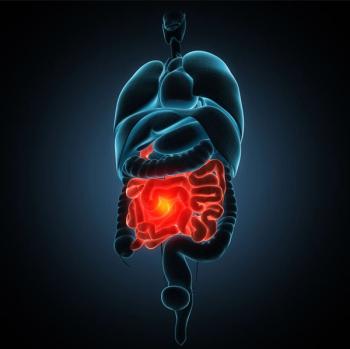
New Inflammatory Bowel Disease Therapies in Development
New drugs are needed because a significant fraction of patients reach the end of the line with existing therapies.
New drugs are needed for patients with inflammatory bowel disease (IBD) because a significant fraction of these patients reach the end of the line with existing therapies, according to Jean-Frederic Colombel, MD, Mount Sinai School of Medicine in New York City. Dr Colombel gazed into the crystal ball in his presentation on new IBD therapies in development at 2012 Advances in Inflammatory Bowel Diseases, the Crohn’s & Colitis Foundation’s Clinical & Research Conference, held this week in Hollywood, Florida.
In reviewing data showing that 50% of infliximab users discontinued the drug for relapse within 6 years and 82% of discontinuers were receiving combination immunosuppression at the time of discontinuance, Dr Colombel echoed other presenters. For example, Stephen Hanauer, MD, reported on the Crohn’s trial of the fully Human antibody Adalimumab for Remission Maintenance study’s finding that 27% of responders to adalimumab lost response by 1 year. In a separate study, only 25% of patients who needed to be tried on a third anti–tumor necrosis factor (anti-TNF) agent maintained remission at 2 years. The studies taken together demonstrate that new drugs are needed.
Dr Colombel reviewed the following new anti-TNF agents in the pipeline that clinicians probably will be using in the near future:
• Golimumab. Use of this anti-TNF agent nearly doubled the rate of clinical response by week 6, compared with placebo, in the 2012 study Dr Colombel quoted. There were similar but slightly less impressive numbers for maintenance of remission through week 54. Golimumab currently is approved in the United States only for rheumatologic diseases pending further review of its efficacy in IBD.
• Ustekinemab. This agent currently is approved in the United States only for severe plaque psoriasis, but evidence for its effectiveness in Crohn disease after another anti-TNF agent is not successful is provided in a 2012
• Vedolizumab. This promising new anti-TNF agent currently is under study for treatment of patients with IBD; it is not yet approved.
• Tofacitinib. This novel small-molecule oral Janus kinase inhibitor currently is approved in the United States only for rheumatoid arthritis. Its oral administration would qualify as a major advance if it has activity similar to that of the anti-TNF agents. Use of this agent also will be a huge advance for those for whom the use of anti-TNF agents is not successful, because tofacitinib’s mechanism of action is different, blocking the inflammatory pathway in a completely different place. Tofacitinib’s superior efficacy compared with placebo in patients with moderately to severely active ulcerative colitis was established in a
Dr Colombel briefly mentioned a few treatments that have been unsuccessful in trials. The use of secukinumab and brodalumab both let to worsening disease activity and candidiasis. Orally administered anti-TNF agents and vaccine-based therapies also have been unsuccessful.
Promising but future-oriented treatments that eventually may come to large clinical trials include mesenchymal stem cell transfer and autologous hematopoietic stem cell transplant.
One other crystal-ball prediction came not from Dr Colombel but rather from the lecturer immediately preceding him, Dr Maria Abreu of the University of Miami. She noted that given the deepening understanding of the genetic commonality of ulcerative colitis and Crohn disease, clinicians will in the future probably not obsess quite so much about distinguishing between the two. Treatment modalities already have started converging, and this trend probably will accelerate in the future.
Newsletter
Enhance your clinical practice with the Patient Care newsletter, offering the latest evidence-based guidelines, diagnostic insights, and treatment strategies for primary care physicians.































































































































